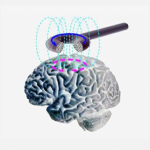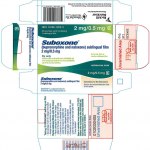Change, at Ground Level
...real progress has been made -- especially with the most challenging population, the very chronic, relapsing, “street" drug user.

Select Page
by C. Scott McMillin | May 5, 2025 | Treatment | 0 |
...real progress has been made -- especially with the most challenging population, the very chronic, relapsing, “street" drug user.

by C. Scott McMillin | Aug 18, 2022 | Recovery | 0 |

by C. Scott McMillin | Mar 28, 2022 | Treatment | 0 |

by C. Scott McMillin | Oct 25, 2019 | Addiction Clinicians, Treatment | 0 |

by C. Scott McMillin | Sep 21, 2017 | Programs, Treatment | 0 |

by C. Scott McMillin | Jul 6, 2017 | Public Policy, Treatment | 0 |
by C. Scott McMillin | Mar 16, 2017 | Thinking About Addiction, Treatment | 0 |
An answer such as vigorous exercise or meditation or going to a meeting will never be as universally attractive to someone a few weeks sober as “well, here, why don’t you toke this?”
Read Moreby C. Scott McMillin | Oct 10, 2016 | Treatment | 0 |
As any case manager knows, making a referral can be a challenge, since many fall by the wayside during transition to another provider, different therapist, etc.
Read Moreby C. Scott McMillin | Oct 3, 2016 | Public Policy | 0 |
Many new programs are started in the hopeful expectation that they’ll become self-supporting within a few years.
Read Moreby C. Scott McMillin | Sep 22, 2016 | Thinking About Addiction, Treatment | 0 |
From a patient’s viewpoint, physicians can be somewhat blase’ about risks associated with a medication.
Read Moreby C. Scott McMillin | Sep 19, 2016 | Addiction, In the News, Treatment | 1 |
It may be that kratom is a drug that some can use without much difficulty, while for others, it becomes pathological.
Read Moreby C. Scott McMillin | Aug 8, 2016 | Public Health, Treatment | 0 |
So even if drug use decreases, and clients continue on methadone, they don’t necessarily make the other much-desired (by society) changes — such as giving up crime.
Read Moreby C. Scott McMillin | Mar 24, 2016 | Addiction Clinicians, Programs, Thinking About Addiction | 1 |
In terms of a comfortable detox, Suboxone was a success. In terms of a return to opiate use, it was a failure.
Read Moreby C. Scott McMillin | Feb 25, 2016 | Thinking About Addiction, Treatment | 3 |
Reliable stats on relapse can be hard to come by, but return-to-heroin rates appear to run above 80% (and in some cases, higher).
Read Moreby C. Scott McMillin | Aug 17, 2015 | Programs, Treatment | 0 |
My longstanding rule is to design your program to treat your population, not some idealized group of subjects who did well in a research setting with a significantly different structure.
Read Moreby C. Scott McMillin | May 28, 2015 | Programs, Treatment | 1 |
We spend a great deal of time in treatment seeking to increase patient motivation, but these programs do not rely on a motivated patient.
Read Moreby C. Scott McMillin | May 21, 2015 | Thinking About Addiction, Treatment | 2 |
It also suggests that the ‘return to heroin’ rate among former maintenance clients may be even higher.
Read Moreby C. Scott McMillin | Apr 6, 2015 | Public Policy | 1 |
When a clinician uses an EBP, she’s reassuring herself that it’s likely to be more helpful than if she sat on her hands and did nothing.
Read More